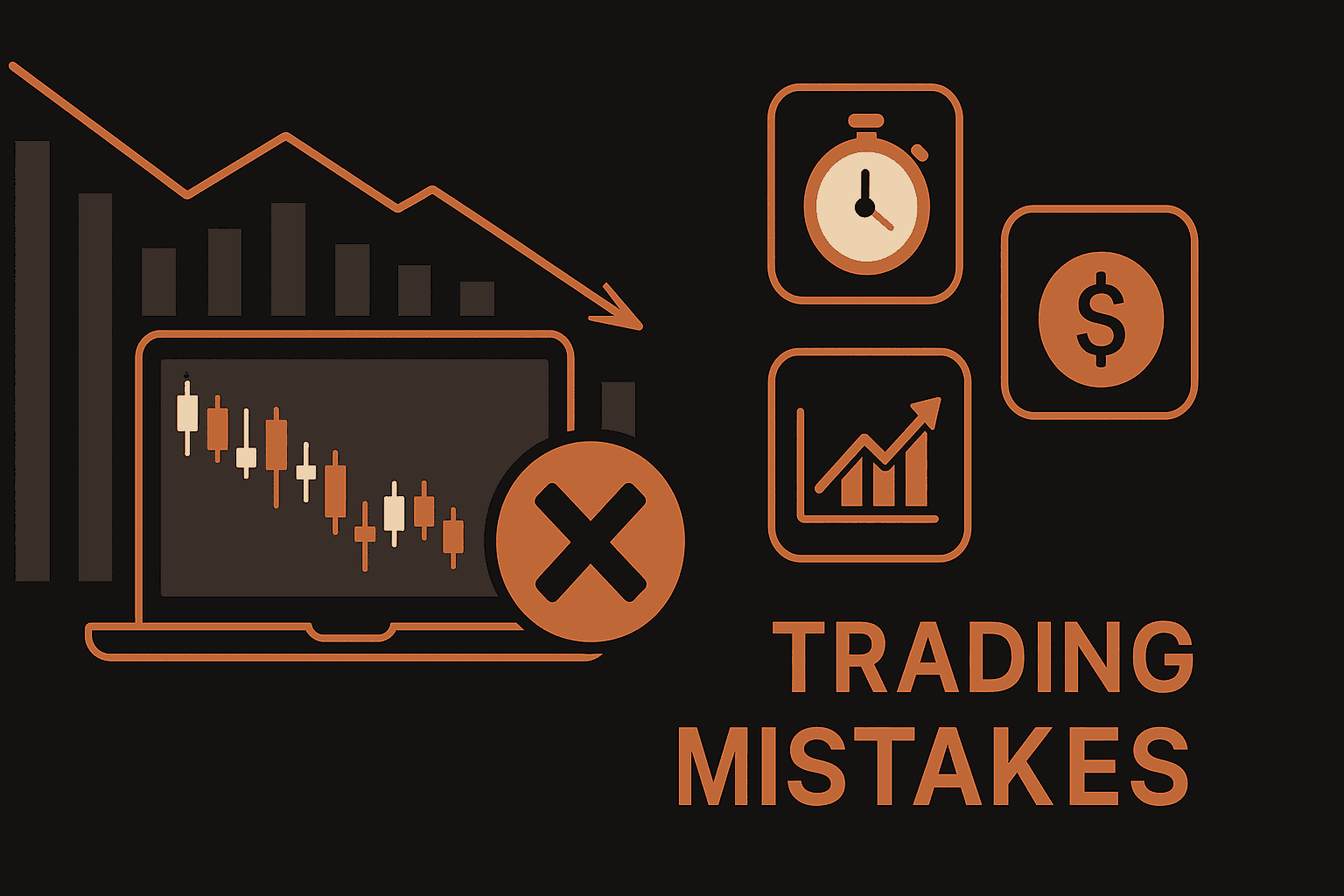Trading Journal
Avoiding the Top Mistakes New Traders Make

Avoiding the Top Mistakes New Traders Make
The statistics are brutal: over 80% of retail traders quit within their first two years. It's rarely due to strategy failure alone. Instead, most new traders fall victim to common behavioral and process-related mistakes. Understanding these pitfalls — and building systems to avoid them — is critical for long-term survival in the markets.
1. Trading Without a Plan
Many new traders jump in without a structured approach.
Trading without a plan means every decision becomes reactive. There's no clear entry or exit criteria, no risk parameters, and no way to measure improvement. A study in the Journal of Financial Markets found that traders with predefined trade plans outperformed those using discretionary tactics.
Without a plan, you're trading noise, not strategy. A journal helps formalize your process — making it easier to evaluate and adjust.
2. Risking Too Much Per Trade
Overexposure is the fastest path to ruin.
New traders often risk 5–10% of their account on a single trade. Professional traders rarely exceed 1–2%. The problem isn’t just the potential for big losses, but the emotional pressure that accompanies them. Large risks trigger fear, which distorts decision-making.
Using position sizing and journaling your risk per trade are essential practices to enforce discipline and preserve capital.
3. Overtrading
More trades do not equal more profit.
Overtrading often stems from boredom, FOMO, or the desire to "make back" losses quickly. But each trade carries opportunity cost, commissions, and emotional fatigue. A lack of trade filters and poor journaling habits often lead traders to click without conviction.
By reviewing your journal for trade frequency vs. profitability, you can pinpoint when you're trading from impulse — and reduce it.
4. Revenge Trading
Emotional responses drive poor decisions.
Revenge trading is the act of placing impulsive trades after a loss, trying to recover quickly. It’s one of the most destructive habits in trading. According to Prospect Theory, emotional reactions to losses often lead traders to double down, magnifying risk and undermining long-term profitability.
Journaling emotional states before and after trades helps identify when revenge impulses are most likely — and build strategies to pause or reset.
5. Ignoring Market Conditions
Not all strategies work in all environments.
New traders often treat all setups as equal, regardless of whether the market is trending, volatile, or consolidating. This mismatch leads to frustrating inconsistency. Recognizing the macro environment — and journaling the context of each trade — allows you to adapt or sit out when your edge is weak.
This turns randomness into pattern recognition.
6. Neglecting Post-Trade Review
Learning stops without reflection.
Many traders fail to review their trades. They focus only on the outcome (profit/loss), not the process. But without reviewing setup quality, emotional control, and adherence to plan, improvement stalls. As mentioned in our post on why a trading journal is a trader’s most important tool, consistent review builds awareness and accountability.
A journal acts as your personal coach — but only if you use it regularly.
7. Relying on Signals Instead of Understanding
Blindly following alerts or copy trades leads to dependency.
While signal services or Discord groups can be helpful, they’re no substitute for self-understanding. New traders often chase setups they don’t fully grasp, leading to poor entries and confused exits. Journaling the rationale behind each trade forces clarity.
Over time, this builds confidence and internal edge — not dependency on others.
Final Thoughts: From Mistake to Mastery
Every trader makes mistakes. What separates long-term winners is the ability to learn from them and adapt.
Journaling is the antidote to chaos. It turns each mistake into a data point and each trade into a lesson. As you’ve seen, most beginner pitfalls are avoidable — if you apply structure, emotional discipline, and feedback systems.
That’s what TradeReveal was built for. It automates your journaling, tracks your metrics, and surfaces behavioral patterns that lead to losses — so you can correct them fast.
Start your free TradeReveal account today and turn your mistakes into your greatest edge.
Happy Trading,
The TradeReveal Team